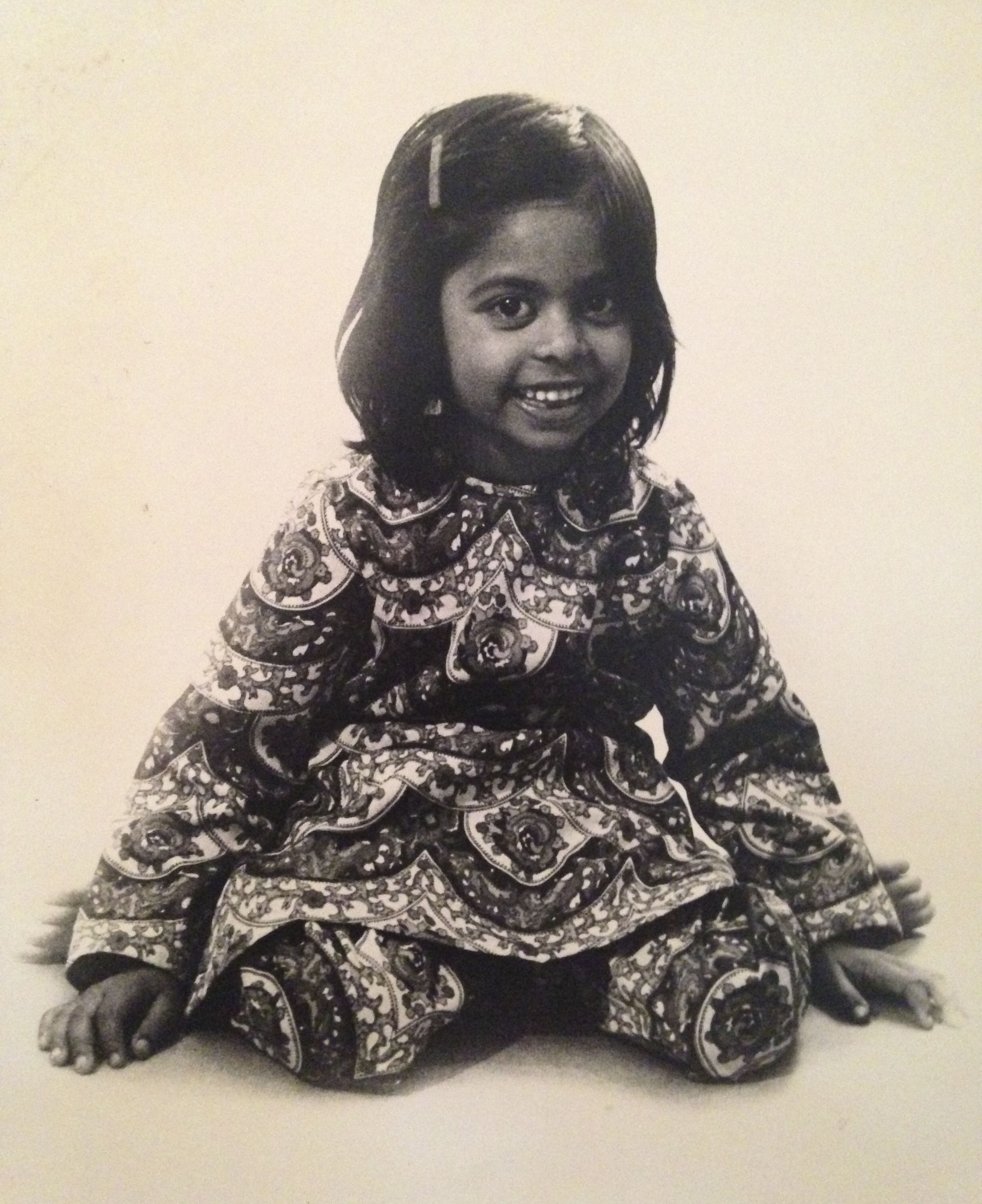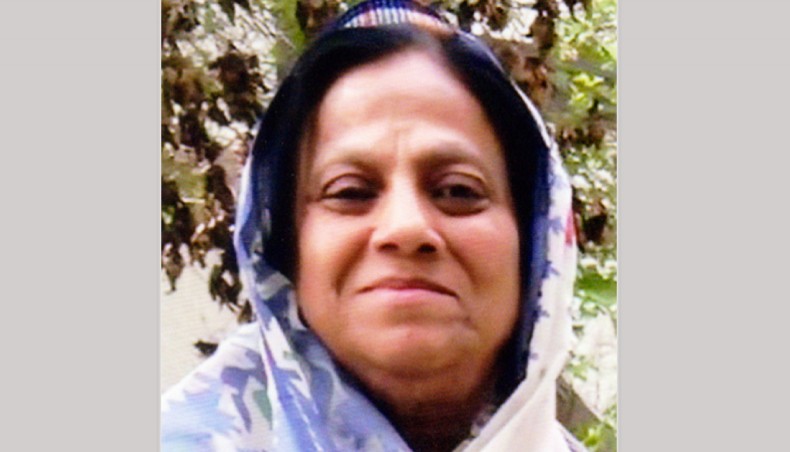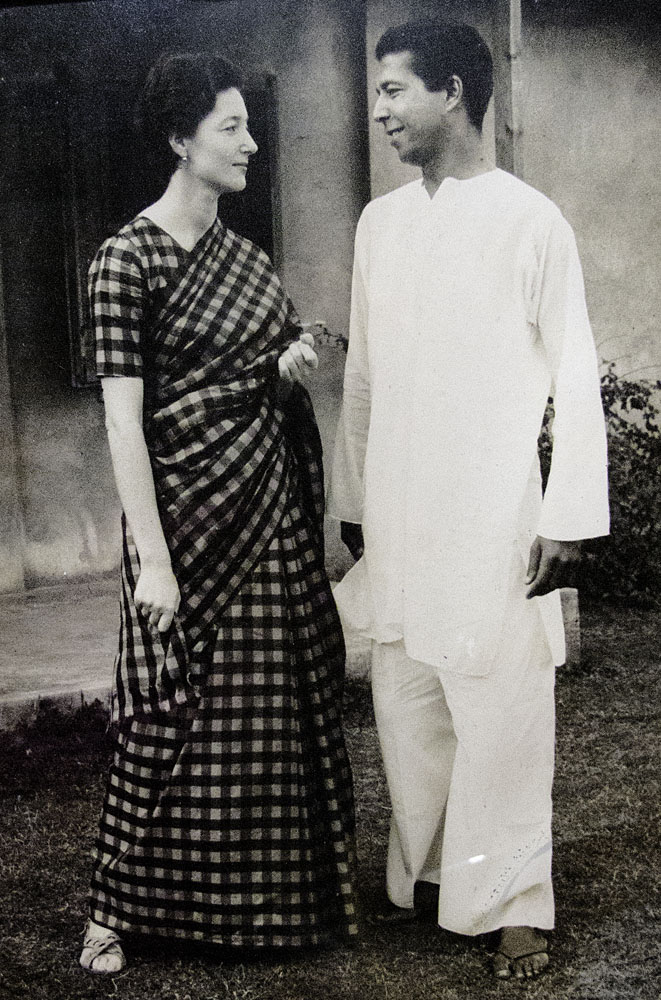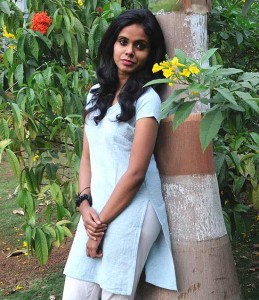Tag: family
A long way to run
It was 18th May 1976. My sister Najma (Apamoni to me) had just given birth to her second child. It was coming up to my final exams at Liverpool University. The hospital in Fazakerley was about ten miles away. I’d used all my holidays and every weekend, working as a labourer at the building sites of Lockwoods Constructions in Preston, St. Helens and Bootle, to save money for my overseas student fees, and for my keep. There had been little extra time to study during term and there was a lot of catching up to do. The bus ride would have taken too long and been much too expensive. I used to live in cheap digs at the Catholic Chaplaincy of the Liverpool University and pedaled out from Brownlow Hill with my Radio Shack bike radio churning out ‘Living Next Door to Alice’ by Smokie on full blast. Apamoni’s firstborn, Mowli, had been born on the 24th March 1971, the eve of the genocide in Bangladesh. The exams and money woes that accompanied Sofi’s birth were insignificant in comparison.

Receptacles of Love
It was the early hours of the morning when we heard the knock on the door. It had been just over a month since I’d come out on bail. But this was not a scary knock, and it wasn’t a locked door. In the tense days preceding the elections, violence, vote rigging and the plight of my fellow prisoners, were our major concerns, so we were completely unprepared for Mahtab’s words. “Saydia’s mother has just died”, was what he simply said. The weight of that short sentence would have pinned us down, but then we heard the sobbing. Saydia’s uncontrollable, unmeasurable, unrestrainable weeping, muffled as it was through her partly open door, brought home the reality of what we had just heard. Holding her, hugging her tight was all I could do. Words have little meaning at such times.

The Iranian Living Room
the first ten years of my life
were spent in black and white
and predominantly in our living room
yet my memories of those years
are full of colour.
Hamid Ziarati, Iranian writer
Iranian Living Room?is the first of a series of editorial projects self-published by Fabrica. Continue reading “The Iranian Living Room”
Chotomami: The last kiss
I would kiss her on the lips and she would perk up and say “Ah, a real kiss”. Chotomami (little aunt) had always been special. Luise Morawetz-Rafique (1.1.1929 – 9.7.2013) was the only white person in our family, and we were naturally curious. My mama (mother’s brother) had many foreign friends, and I would occasionally be taken to the Dhaka Club, an old colonial club that I now avoid on principle. As a child, going to the swimming pool, having marshmallows and seeing naked white men changing in front of us, were all things that led to endless conversations amongst the rest of the kids. Chotomama and mami had two daughters Laila and Laeka and a son Akbar. We were all close in age, but Akbar and I, boys, mischievous and with boundless energy, were the closest of pals. We were also constantly fighting. The two girls were the heartthrobs of all the older boys, and I by being a close cousin and thus a stepping stone, got special treatment from the boys. They were fun days.

I Singe The Body Electric
In a house of slamming doors and broken dreams, there are no kisses. Only the confidence of silent curtains.
By MEENA KANDASAMY
In that strange coastal town-city where it rains every morning, I partake of pain as if it is prayer. Married to a violent man who treats me with nothing but distrust and suspicion, my skin has seen enough hurt to tell its own story.
In the early days, his words win me back: I don?t have anything if I don?t have you. In this honeymoon period, every quarrel follows a predictable pattern: we make up, we make love, we move on. It becomes a bargain, a barter system. For the sake of survival, I surrender my space.

I am going to Die on Monday at 6 15 pm
Subscribe to ShahidulNews

When Marc Weide’s mother who was 65 was diagnosed with terminal cancer, she chose euthanasia. Here, we publish his shockingly frank diary of her final days
Monday February 11 2008
5.30pm: Dad is bent over the toilet bowl with a brush in his hand and a scowl on his face. I walk up to him. “Shall I give you a hand?” Dad begins to snicker, abandoning any attempt to make sense of the situation. We stand shoulder to shoulder with our backs to Mom, who paces around the patio with a newly fitted catheter in her hand.
The catheter has been put in by her nurse, Marianne to enable her doctor, who will be with us in half an hour, to give Mom a lethal injection. But instead of having a moment of peace with us, as Marianne suggested, Mom demands that we clean the toilets. Both upstairs and downstairs.
My brother, Maarten, is sitting on the edge of the bathtub, staring out of the bathroom window.
“Imagine,” he mutters. “Her last hour, spent like this.”
This is the Netherlands, where voluntary euthanasia is permitted, as well as physician-assisted suicide. This is the day my mother has chosen to die, and the toilets need to be spotless.
Three months earlier
I’m on a writer’s retreat in the UK, where I have been living for the past three years. I’m working on my novel when my mobile phone rings. The display shows it’s Maarten, calling from the Netherlands. Mom’s test results have come back.
“It’s secondary cancer in her lungs.” He pauses. “They think she’s got two to six months left.”
Continue reading “I am going to Die on Monday at 6 15 pm”
Jane Nona
Subscribe to ShahidulNews
![]()
I had the wonderful privilege of spending one week next to Jane Nona?s bed at the Peradeniya Teaching hospital in Kandy. 75 year old Jane Nona?s statistics could well have been 15, 15, 15. The smallest 75 year old woman I must have ever seen. She had married when she was just 15. Very proudly she tells me about how she gave birth to six strapping baby boys and one girl, all in her own home. A midwife had come and cleaned her up and held burning coals on which medicinal herbs were thrown in, her only means of sanitization. ??He was tall, fair and very kind to me? she says about her husband who had died 15 years ago. ?I knew nothing when I married him, I was only a child. He knew so much more? That had been sufficient for her. She didn?t have any complaints about him, her life, her children, her economic status or her even her reason for coming to a hospital for the very first time in her life. Her grandchildren had forced her to have a check-up. She suspected something was wrong but had no idea what it was. ?I am ready to die but my grandchildren want me to stretch it some more? she says. I looked at her file. She had a prolapsed womb. A small repair was scheduled. She had never before needed to see a doctor and never stayed in a hospital even once in her 75 years. What a blessed life, I thought. I was a veritable live-in compared to her.
She was daunted by the procedures, the examinations, the numerous scans, blood tests, especially because the doctors were mostly male. ?I have no idea what they are telling me child, what on earth is a isscan? Can you come with me when he does it?? I check with doctor and he smilingly says ok. She was schoked he could see right inside her womb. ?If my husband was around and he knew I was doing all this he will jump in the well and die? she embarrassingly declared. We went through most of the tests together. This supposedly more educated and informed 41year old from the city, was learning so much more about life from Jane Nona than any other lessons she must have learned.
Continue reading “Jane Nona”
Witness
Subscribe to ShahidulNews
![]()
6th July 2005
?This man lying here, brought me to this world. He educated me, clothed and fed?me, stood by my own bed in hospitals, stood in the gap for me at school, prayed?for me unceasingly, blessed me, guided me and counseled me and gave me?strength to take the next step. Yet, I watch him lying here, and there is nothing I?can do to stop him from dying??These were my thoughts on a chilly morning in the last room on the left wing of?Lakeside Medical Centre in Kandy five years ago. I felt helpless and useless.
Here I was seated and watching his life ebb away and I could do nothing.?What use was I? Or anything else in this world, if it can?t save the life of a man?such as him ? my father. ?God, are you really there?? I asked a blank wall.?It was also Terryll?s birthday, so I had plans to go back to Colombo that day and?return the next day, to uselessly stand by him. Yet I wanted to be there, in my?desperation to share whatever he was going through. To let him know I was?there, because I believed that even in his comatose state, he heard our voices.
For only a week before, I had spent the whole day with him near his bedside and?sang all the old Tamil songs we used to sing as children. And I saw a smile and?a tear run down his cheek. So he heard me. And that tiny factor was comforting.?What was I trying to do? Ease my conscience? For all the time I did not spend?with him? For the trouble I put him through as a teenager? For the anxiety I gave?him as an adult? I didn?t know. Perhaps he knew. We bonded that day like never?before. Even in his state, we connected. Like we always did. My father and I.
I stood up to leave, my eyes never leaving the respirator and his one hand on?his belly moving up and down which was the only sign of life. And suddenly the?movement stopped. Just like that. I knew the end was here. I handed my baby?(Zoe was then nearly 2 years) to the nurse and although we were asked to leave?the room, I wanted to stay by his side. To make sure they did everything right.
Suddenly everything was clear to me. This was the end. It was time to let go.?This man lying here will no longer be my strength. I had to be his. I cradled his?head in my hands, I whispered ?Dada I love you. We all love you. Go in peace.??The medics turned him face up. He grimaced with his eyes closed. I put his?hands together, straightened his legs and once again held his head up so the?blood would flow out and not block his throat. I didn?t cry. I wanted him released.
His pulse had already stopped. The doctor asked if they could use the electric?shocks on him as a routine procedure. I told them to leave him alone. His face?relaxed, he looked so peaceful. I put my head down on his chest. There was?nothing. My everything was suddenly nothing. I still didn?t cry. I helped the nurses?take out the tubes and clean him up.
He looked so peaceful, in a long time. Yet through the 7 months since diagnosis,?he never once complained. Not even when they stuck needles in his stomach?to release the fluids. He would smile and thank the nurses and compliment on a?good job done. I turned around and held the doctor?s hands and thanked for the?efforts, I held the nurses hands one by one and thanked them too. That is what?he would have done. Blessed them and thanked them profusely. The pathologist?covered his face with his arm and sobbed against the wall. Dada had coaxed him?several years ago to pursue his studies and make a man of himself. There were?nurses in the room he had recommended for jobs.
I filled out the death certificate calmly. Everything was so clear and programmed.?Name of deceased: Walter Jonathan Sinniah. Time of death: 1.45pm. Cause of?death: General System Failure due to multifocal carcinoma of the liver. Parent?s?name: Peter Murugesu Sinniah and Mary Sinniah. Place of Birth: Deniyaya.?Place of burial: General Cemetery, Mahiyawa. Witness of death: Jeevani?Fernando. Relationship to deceased: Daughter. I couldn?t write anymore.?I wanted to remain a witness to his life rather than his death. I had witnessed 35?years of it that day. And even now, it is his extraordinary life that challenges me?on a daily basis. Not his death.
Jeevani Fernando
A Class Above
Subscribe to ShahidulNews
Jeevani Fernando
We sat nervously huddled on the wooden bench of the Haputale Railway Station at 8pm last night, clutching our precious collections from the trip – kithul jaggery from Badulla and jars of orange marmalade, guava jelly and Nelli syrup from Adhisham for the two grandmothers.? Partly shivering in the cold, partly wondering how we were ever going to make the 10-12 hour journey back home by getting in to a train from a midway station with no previous booking.? We had taken a break on the way back to Colombo to visit the beautiful monastry Adhisham and didn’t realise the train will be full by the time it comes to Haputale.
“I love all kinds of people mummy, but I just can’t travel 3rd class on the train” said Mishka. We had just that morning taken 3rd class tickets from Badulla to Haputale and it was quite an experience when, after having paid for 4 seats, we were down to one, when Samaritan love overtook us and we gave seats to mothers with babies and grandmothers, also with babies in the hope of getting a sympathetic seat in an already overcrowded train. Mishka was miffed that people could assume we would feel sorry.?Little realising we were going to need that same sympathy soon.
I said let’s pray. Zoe said let’s throw some people out. Kyle said ‘don’t worry mummy, something will work out’.?15 more minutes to go for the train to arrive. I looked at my 3 fellows and thought I must do something. They had been such good troopers, climbing up and down mountains, trekking nearly 2kms in Indian sandals (bad preparation by the mother) to see and touch the Dunhinda falls, that majestically fell 190ft down creating a mystical cloud of spray and awe.?They had eaten noodles for breakfast and fried rice with no meat as it was the Buddhist festival where no meat was cooked.? They had slept in a mud cabin in the woods and no neighbouring lights, with absolutely no fear at all.?They had been thrilled at every little thing, the train rides through tunnels and around the mountains, the fiery short-eats and even the ghastly toilet in the train where they could see the tracks while doing their ‘little jobs’.
So I plucked my courage and told my three, ‘let mummy go talk to the station master’. The man at the counter had refused to even issue 3rd class tickets to us as he wasn’t sure if there would be room even to stand ‘all other seats FULL madam’ he had said a while ago.? So I by-passed him and walked into the station master’s office.? I made polite introductions in English and he asked what I was doing in Haputale and what had I seen, etc, etc. Then he asked me the wrong question ‘Are you Tamil or Sinhala?’ ‘Oh no!’ says Mishka, because she knows the tirade her mother goes into when that question is asked.? So I let him have it – about how this country got into this state because of questions like that.?And I thought, there goes any chances of getting seats.? Yet,?he didn’t seem peeved. He was in fact making very good conversation.? It ended with his promise ‘I will somehow get you seats but first get yourself on the train with 3rd class tickets’.?I saw Mishka’s face fall.
The train came. It was a mad rush. We managed to scramble into 3rd class. It was packed. It smelled of alcohol and it had no room even on the floor.? I was dismayed but was determined to take it.?I had just managed to put the bags up on the rack when the station master, uniform, cap and all, came running to our compartment and hurried us to take our bags and get off the train. The children groaned. We got off.? He signaled to a man in uniform where the reserved seats were and held up 4 fingers.? We were like refugees now running to the front of the train with bags and jackets and Ivndian slippers flapping under our feet. Passengers poked their heads out to see what was going on with the station master who was also running along with us. The engine driver was getting impatient.? A quick exchange between the two men and we were bundled into 2nd class reserved compartments.? Reclining chairs and all. All I could do was jump back down and shake hands with the station master and thank him profusely.? And as the train pulled away, he shouted ‘I don’t know why I did this but certainly not because you are a Tamil!’
I fell back on my seat laughing. Apparently some others had to be re-arranged to another compartment to fit us in there.? The children were giving hi-five’s to each other. Mishka had found a new hero – a tall, smart station master in Haputale. She was all starry-eyed. I was speechless.? The kindness people show others, in any dimension, makes such a difference to an individual, a family.? Never should one shy from going that extra mile, lending a hand or seeing to the comfort of another, to a strange mother with three children who believed in miracles.? The children will never forget this experience and also the belief that people in their country are helpful, kind and generous no matter what ethnicity they belong to.
And as the knight in shining armour blew the whistle, and Zoe cuddled up to me on the seat, happy she didn?t have to throw anyone out the window, I looked forward to the future of my children.


